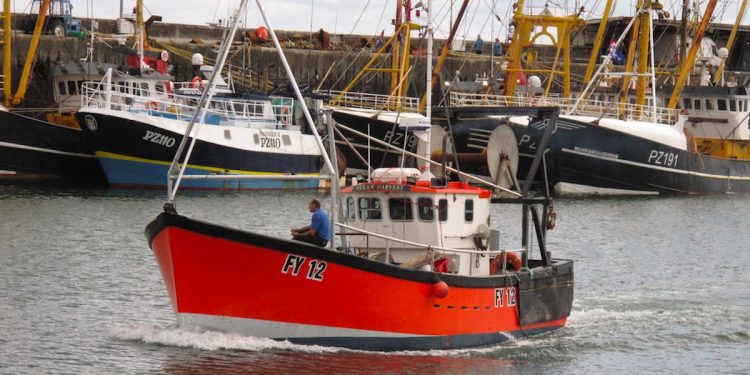The NFFO has responded to the UK government’s plans for catch reporting for the under-10 metre fleet, stating that plans have not been properly thought through.
Defra, the Welsh Government and the Marine Management Organisation are consulting on a new requirement for mandatory catch reporting for the under-10 metre commercial sea fishing fleet in England and Wales which could require all under-10 metre vessels to provide catch information on species subject to quotas, catch limits or effort restrictions, via a mobile device (a smart phone or tablet), prior to the fish leaving the vessel.
Vessels which only catch non-quota species would be required to record their catches via a smart phone or lap-top within 24 hours. For all catches, (quota and non-quota), a declaration would be required within 48 hours, providing accurate weights of all species landed.
The NFFO’s position is that the under-10m sector continues to be disadvantaged by patchy and incomplete collection of catch data.
‘Stocks such as skates and rays, which are important for many small-scale vessels, when categorised as data-limited or data-poor, have been subject to a fundamentalist interpretation of the precautionary approach, triggering 20% annual reductions in TACs over successive years,’ the NFFO states.
‘The consequence has been a severe reduction in fishing opportunities and loss of earnings for the fleets concerned. The EU landings obligation has increased the risks associated with data gaps exponentially. The skates and ray fishery illustrates the type of circumstances where improved catch data could be used to channel policy and management decisions into a more constructive direction for the small scale fleets.’
According to the NFFO’s spokesman, accurate catch data is likely to become more important in the future. In addition to choke risks, the design of light touch management measures for genuine low impact vessels is likely to require better catch data from the small-scale fleets than has been the case to date.
‘Understanding the individual vessel and aggregate fleet exploitation rates are central to the design and application of management measures appropriate to the stocks and fleets concerned.’
‘We also agree that modern technology (smart phones, tablets and lap-tops) can play an important role in collecting and transmitting data in ways that are more efficient than paper log-books. There are advantages associated with technology that can minimise reporting requirements by eliminating duplication. Systems can be updated quite simply through software updates.’
But there are reservations, and the NFFO’s position is that the consultation reflects a regulatory approach that is insufficiently grounded in an understanding of the practicalities involved, or the specificities of the fisheries concerned.
‘Little attempt has been made to establish a meaningful dialogue about the practical implementations issues with those who will be affected, and the consultation pays insufficient attention to the range of fishing operations, type of vessel, and patterns of landing in the under-10m sector.’
The NFFO comments that the consultation suggests a blanket bulldozer approach, when a more discriminating application would deliver better results.
‘It potentially threatens to criminalise small-vessel operators for non-compliance, when the ability to comply is out of their hands, and it risks not catering for those who are not literate in the use of computers or electronic smart-phone technology. It’s a good idea can be spoiled by poor implementation and this consultation carries the hallmarks of a recipe for, if not wholesale failure, then sub-optimal outcomes.’
The NFFO recommends avoiding the arbitrary timetable proposed and a move away from a blanket approach. ‘Instead, begin a national conversation with the different small scale fisheries in the ports and creeks about the pros and cons of improved data and the means available to secure it. This will certainly involve effort and delay but our considered view is that in the long run it will deliver better outcomes,’ the NFFO’s spokesman commented.









